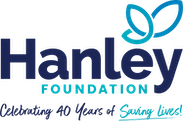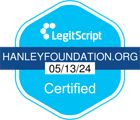By Hanley Foundation Regional Prevention Coordinator Diamond Howard-Stevens
On November 9, 2001, three days after my 12th birthday, my stepfather was shot and killed by my father. During this time, my mother, brother, and I went through a major change in our lives and suffered great pain and sorrow. Growing up, all I wanted was for my family to be happy and successful. However, this painful event really took a toll on me. At this age, I never understood how such a tragic event could happen to my family.
According to the National Institute on Drug Abuse (NIDA), the term “designer drugs” refers to drugs that are created in an underground or illegal laboratory.
The properties of a drug that comes from a plant—such as cocaine, morphine, or marijuana—are changed using the tools of chemistry. The NIDA states that the resulting “designer” drugs typically have a different effect on the brain or behavior that is new for the user.
Shortly after, we learned that my father had been indulging in different drugs before committing this crime. When this event took place, my father was using methamphetamine and drinking alcohol. My father also was experimenting with Ecstasy and marijuana.
Almost 19 years later, it is still hard for my father to recall this incident.
He mentioned that he turned to drugs to self-medicate from his childhood trauma. During this time, I began to go through a deep stage of depression; I quit caring about life and even myself.
It is estimated that 1 in 5 children grows up in a home in which someone uses drugs or misuses alcohol, according to a study cited in an article on the American Academy of Pediatrics website.
Substances have long-lasting effects on the person using it. Nevertheless, addiction affects the entire family in terms of emotional, financial, legal, and medical damages.
My family and I experienced tremendous emotional damage. For someone who viewed her father as their “hero,” it took years for me to admit that my father had become “an addict.” As we know, designer drugs can become very addictive.
I never imagined that this could happen to my father or my family.
Also, I feared that if any of my friends found out, they would label me and tease me. Having a father who had become addicted to drugs caused me to assume that anyone who engaged in drugs would turn out the way my father did. For years, I despised anyone who used drugs.
After my family attended all the court sessions, the judge handling the case recommended that my mother, brother, and I attend counseling. Attending counseling sessions allowed my family and I to work through this event. Many times, people focus on counseling for the substance abuser, yet everyone involved must begin seeking some form of counseling to work through any emotional damage.
Had I not experienced this traumatic event connected with designer drug usage early on in my childhood, I may not have been able to see the value in pursuing a degree in psychology and mental health counseling. Pursuing this degree allowed me to counsel individuals who dealt with similar issues. More importantly, it allowed me to heal and forgive my father.
Resources:
National Institute on Drug Abuse. Real teens ask: What are designer drugs? https://teens.drugabuse.gov/blog/post/real-teens-ask-what-are-designer-drugs
American Academy of Pediatrics. Families Affected by Parental Substance Use.
https://pediatrics.aappublications.org/content/early/2016/07/14/peds.2016-1575#xref-ref-7-1



